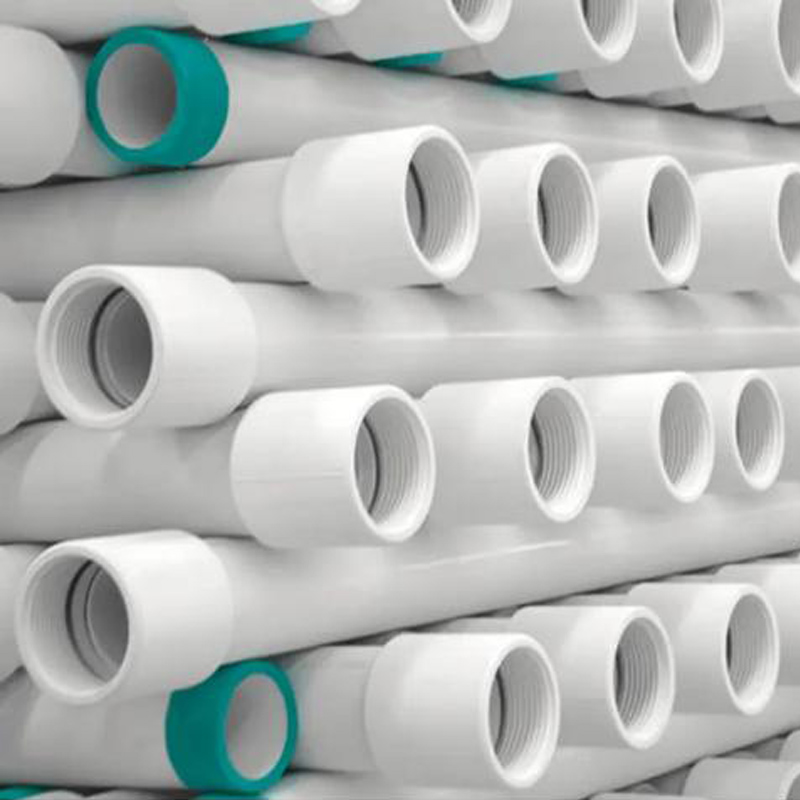Sep . 11, 2024 16:32 Back to list
Wholesale PVC Pipe Types and Sizes - Quality PVC Solutions for Your Projects
Understanding Wholesale PVC Pipe Types and Sizes
When it comes to plumbing and construction, PVC pipes have become a popular choice due to their durability, cost-effectiveness, and versatility. In the realm of wholesale purchasing, understanding the various types and sizes of PVC pipes is essential for both suppliers and consumers. This article aims to shed light on the most common types of PVC pipes, their respective sizes, and their applications.
Types of PVC Pipes
1. Schedule 40 PVC Pipe This is one of the most common types of PVC pipe available. It is characterized by its medium thickness, which provides a good balance of strength and pressure-handling capability. Schedule 40 PVC is often used in residential and commercial plumbing systems, such as water supply lines and drainage applications.
2. Schedule 80 PVC Pipe A step up from Schedule 40, Schedule 80 PVC pipes have a thicker wall, allowing them to withstand higher pressures. These pipes are typically used in industrial and chemical applications, where durability and resistance to corrosion are crucial.
3. PVC Conduit Pipe Designed for electrical applications, PVC conduit pipes protect electrical wiring from moisture, chemicals, and physical damage. They are available in both rigid and flexible forms, catering to a variety of installation requirements.
4. PVC Drain, Waste, and Vent (DWV) Pipe Specifically designed for drainage systems, DWV pipes facilitate the efficient removal of waste. They are lightweight, easy to assemble, and resistant to corrosion, making them a preferred choice for sewage and venting systems.
5. Schedule 120 PVC Pipe This less common type features even thicker walls than Schedule 80 and is utilized in applications requiring extremely high pressure, such as in certain industrial settings.
wholesale pvc pipe types and sizes

Sizes of PVC Pipes
When it comes to sizes, PVC pipes are available in a range of diameters. Common sizes include
- ½ inch - ¾ inch - 1 inch - 1½ inch - 2 inch - 3 inch - 4 inch - 6 inch - 8 inch - 10 inch - 12 inch
The size of the pipe is crucial, as it directly affects the volume of fluid that can be transported. For example, larger pipes are typically used in applications requiring a higher flow rate, such as main water lines or large drain systems.
Applications of PVC Pipes
The applications of PVC pipes are vast and varied. In residential settings, they are commonly used for plumbing, irrigation systems, and drainage. In industrial contexts, PVC pipes might be employed in chemical processing or manufacturing facilities due to their strength and resistance to various chemicals. Additionally, their lightweight nature makes them easier to transport and install, further enhancing their appeal.
Conclusion
In conclusion, understanding the different types and sizes of wholesale PVC pipes is vital for making informed purchasing decisions. Whether you are a contractor, a plumber, or an individual homeowner, familiarizing yourself with these options can lead to better project outcomes. PVC pipes offer a reliable, long-lasting solution for a wide range of applications, making them an indispensable part of modern infrastructure. When sourcing these materials at wholesale prices, consider both the type and size that best meets your project's requirements to ensure efficiency and effectiveness.
-
High-Quality PVC Borehole Pipes Durable & Versatile Pipe Solutions
NewsJul.08,2025
-
High-Quality PVC Perforated Pipes for Efficient Drainage Leading Manufacturers & Factories
NewsJul.08,2025
-
High-Quality PVC Borehole Pipes Durable Pipe Solutions by Leading Manufacturer
NewsJul.08,2025
-
High-Quality PVC Borehole Pipes Reliable PVC Pipe Manufacturer Solutions
NewsJul.07,2025
-
High-Quality UPVC Drain Pipes Durable HDPE & Drain Pipe Solutions
NewsJul.07,2025
-
High-Quality Conduit Pipes & HDPE Conduit Fittings Manufacturer Reliable Factory Supply
NewsJul.06,2025

